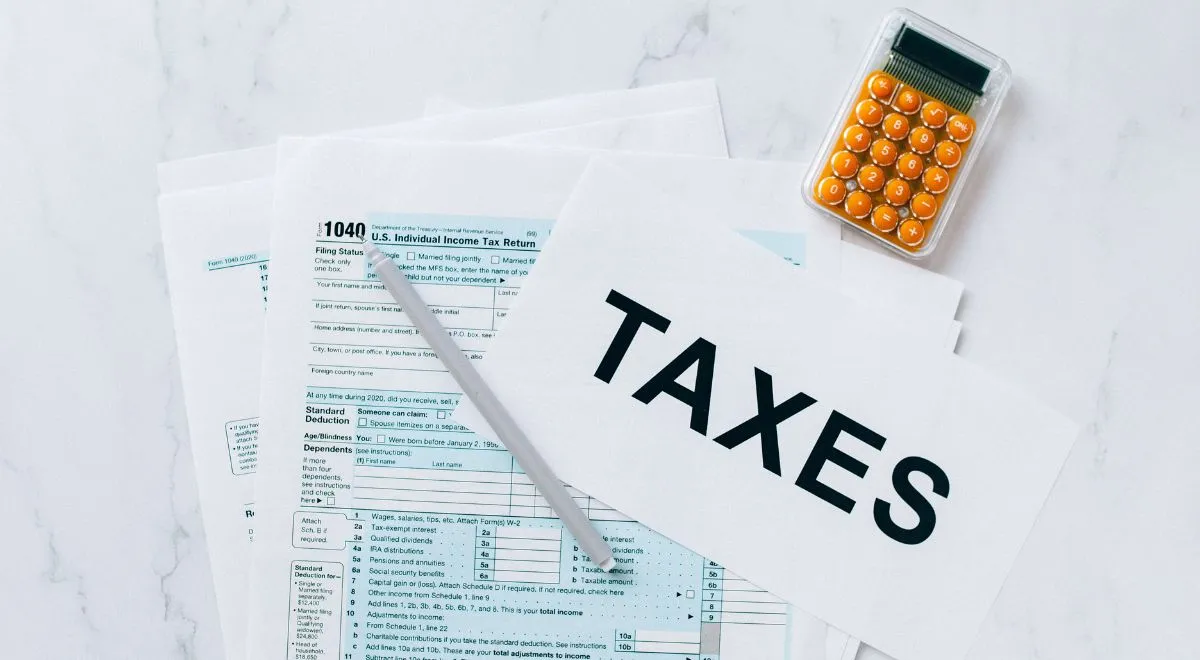In Germany, cryptocurrencies gained a lot of popularity. According to current estimates, 5.8% of Germans possess cryptocurrency, with Bitcoin being the most popular cryptocurrency. It’s not common knowledge that Germany has advantageous or low tax rates. Germany does, however, have a rather advantageous tax structure for cryptocurrencies. Its modern technological infrastructures further make it among the most accessible places for cryptocurrency users. Germany is neither a tax haven nor a cryptocurrency tax-free nation. However, because of its relatively low taxes on cryptocurrency exchanges, it has become a more appealing nation for cryptocurrency investors.
Taxes may be imposed on cryptocurrency for a number of reasons, such as when you sell it for more than €600 in less than a year or receive payment in cryptocurrency. By the end, you’ll have a clear understanding of what you need to do to stay on the right side of the law when it comes to crypto taxes in Germany.
Why Crypto Taxes in Germany?
Over the previous decade, cryptocurrency’s popularity in Germany has grown rapidly. It’s a good idea to consider local interest when determining where to invest in cryptocurrency. Here are some statistics to show how significant cryptocurrency is to Germany’s local economy:
- 5.8% of Germans are bitcoin owners.
- Of this group, 69% invest in Bitcoin.
- Of German cryptocurrency owners, 35% utilize them to make purchases.
- 72% of cryptocurrency owners in Germany use at least €100 per month on cryptocurrency purchases.
However, these facts simply show how common cryptocurrency is. Because cryptocurrency is classed as private money, Germany is among the finest places to invest in it. This implies that you won’t pay taxes on any cryptocurrency you’ve owned for longer than a year as a private investor.
Profits from cryptocurrency are free from taxation if they are less than €600. This benefit, however, isn’t available for companies that use cryptocurrency to hire or pay staff members. Taxes will apply to these earnings and payments just like they do to other currencies.
Who Regulates Crypto Taxes in Germany?
In Germany, crypto taxes are applied and regulated by various government institutions at different levels. The primary responsibility lies with the Federal Ministry of Finance (Bundesministerium der Finanzen), which establishes the tax regulations and guidelines regarding cryptocurrencies. Additionally, the Federal Central Tax Office (Bundeszentralamt für Steuern) plays a important role in overseeing tax administration and enforcement nationwide.
At the local level, tax offices (Finanzämter) are responsible for implementing and enforcing tax laws, including those related to cryptocurrencies. These local tax authorities handle tax assessments, audits, and investigations concerning crypto transactions within their jurisdictions.

Furthermore, regulatory bodies such as the Federal Financial Supervisory Authority (Bundesanstalt für Finanzdienstleistungsaufsicht – BaFin) oversee aspects of cryptocurrency activities, particularly concerning financial market regulations and consumer protection.
Overall, the application and enforcement of crypto taxes in Germany involve collaboration among various government institutions at both the federal and local levels to ensure compliance and uphold tax laws effectively.
Types of Crypto Taxes
In Germany, several types of taxes may apply to cryptocurrency transactions. These include:
- Income Tax: This tax applies to the money you make from selling cryptocurrencies, similar to how you’re taxed on your regular income. Let’s say you bought some Bitcoin and later sold it for a higher price. The profit you make from that sale could be subject to income tax. The tax rate varies based on the individual’s tax bracket, ranging from 0% to 45%.
- Capital Gains Tax: If you hold onto your cryptocurrencies for over a year before selling them, any profit you make might be subject to this tax. It’s like a reward for long-term investments. The tax rate depends on your total income and can vary. Capital gains tax rates range from 0% to 25%, depending on the individual’s tax bracket.
- Trade Tax: If you’re actively trading cryptocurrencies as a business, rather than just buying and holding them as an investment, you might need to pay trade tax on the profits you make. This tax is for people who are regularly and commercially trading cryptocurrencies. Trade tax rates can vary by municipality and may go up to 17%.
- Value Added Tax (VAT): Normally, when you buy something, you pay VAT, which is a type of sales tax. However, in Germany, most cryptocurrency transactions are exempt from VAT. It may apply to certain crypto-related services, such as mining or exchange services, depending on specific circumstances.
- Solidarity Surcharge: This is an extra tax on top of your income tax. It’s used to support various projects, including infrastructure development in certain parts of Germany. If you’re paying income tax, you might also have to pay this surcharge. The solidarity surcharge rate is typically 5.5% of the income tax amount.
Income Tax Rates for 2024
| Taxable income range for single taxpayers (EUR) | Taxable income range for married taxpayers (EUR) | Tax rate | |
| 0 to 11,604 | 0 to 23,208 | 0 | |
| 11,604 to 66,760 | 23,208 to 133,520 | 14 to 42 | |
| 66,760 to 277,825 | 133,520 to 555,650 | 42 | |
| above 277,825 | above 555,650 | 45 |
Understanding these taxes is vital because not following the rules could lead to penalties or legal issues. If you’re unsure about how these taxes apply to your situation, it’s best to seek advice from a tax professional who knows about cryptocurrency taxation in Germany.
How to Calculate Crypto Tax?
Calculating crypto taxes in Germany involves understanding the type of transaction, the holding period of the assets, and the applicable tax rates. Here’s a step-by-step guide with an example:
- Determine the Type of Transaction: First thing is to identify whether the transaction involves buying, selling, trading, or receiving cryptocurrency as income.
- Calculate the Profit or Loss: For each transaction, calculate the difference between the acquisition cost (purchase price) and the disposal proceeds (selling price). This determines the capital gain or loss.
- Determine the Holding Period: If the cryptocurrency was held for less than a year before being sold, it’s considered a short-term gain. If held for over a year, it’s considered a long-term gain.
- Apply the Appropriate Tax Rate:
- For short-term gains, apply the income tax rate, which ranges from 0% to 45% based on total taxable income.
- For long-term gains, apply the capital gains tax rate, which ranges from 0% to 25% based on total taxable income.
- Consider Trade Tax: If cryptocurrency trading is conducted as a commercial activity, it may be subject to trade tax. Consult local regulations and tax rates, which can vary by municipality.
- Calculate the Tax Liability: Once the taxable income from crypto transactions is determined, calculate the total tax liability, including income tax, capital gains tax, and trade tax (if applicable).
Example
Let’s say you bought 1 Bitcoin for €10,000 and sold it for €15,000 after holding it for eight months.
- Profit from the sale = €15,000 – €10,000 = €5,000
- Since Bitcoin was held for less than a year, it’s considered a short-term gain.
- Your total taxable income for the year, including other sources, is €50,000.
- According to the income tax bracket, your tax rate is 30%.
Calculation:
Taxable income from Bitcoin sale = €5,000 Tax payable = €5,000 * 30% = €1,500
In this example, you would owe €1,500 in income tax on the profits from the Bitcoin sale.
It’s crucial to keep accurate records of all cryptocurrency transactions and consult with tax professionals to ensure compliance with German tax laws and regulations.
Top Software to calculate crypto taxes
Several software options are available to help individuals and businesses calculate crypto taxes in Germany. Here are a few popular ones:
- CoinTracking: CoinTracking offers a comprehensive cryptocurrency portfolio management and tax reporting tool. It supports various exchanges and wallets, allowing users to track transactions, generate tax reports, and calculate capital gains for tax purposes. CoinTracking also offers specific tax reports tailored to German tax requirements.
- Accointing: Accointing is another platform that provides cryptocurrency portfolio tracking and tax reporting services. It supports integration with multiple exchanges and wallets, enabling users to import transactions and generate tax reports, including those compliant with German tax regulations.
- CryptoTax: CryptoTax is a software solution designed specifically for calculating cryptocurrency taxes in Germany. It offers features such as automated data import from exchanges and wallets, detailed tax reporting, and support for various tax scenarios, including income tax, capital gains tax, and trade tax.
- Blockpit: Blockpit offers a tax reporting platform for cryptocurrencies, including support for German tax regulations. It allows users to import transactions, calculate taxable gains, and generate tax reports compliant with German tax laws. Blockpit also offers additional features such as portfolio tracking and risk analysis.
- Coinpanda: Coinpanda provides cryptocurrency tax reporting services, including support for German tax requirements. Users can import transactions from exchanges and wallets, calculate capital gains, and generate tax reports tailored to German tax regulations.
Calculating Tax with CoinTracking Software
To calculate crypto taxes in Germany using CoinTracking, follow these general steps:
- Sign up for an account on the CoinTracking website.
- Import your cryptocurrency transactions into CoinTracking. CoinTracking supports various methods for importing transactions, including manual entry, CSV file uploads, and API integrations with supported exchanges and wallets.
- Review and verify that all your transactions are accurately imported into CoinTracking. Ensure that the data includes information such as the date of the transaction, type (buy/sell/trade), quantity, and price.
- Go to the “Tax Report” section of CoinTracking and set your tax settings to comply with German tax regulations. This may include specifying the tax year, selecting the appropriate tax method (e.g., FIFO, LIFO), and configuring other relevant tax parameters.
- Once your transactions are imported and tax settings are configured, generate a tax report using CoinTracking’s reporting tools. The tax report will provide a summary of your taxable gains and losses, including details such as total income, capital gains, and tax liabilities.
- Review the generated tax report to ensure accuracy. If necessary, make any adjustments or corrections to the data before finalizing the report.
- Export the finalized tax report from CoinTracking in a format suitable for filing taxes with the German tax authorities. CoinTracking supports various export options, including PDF, CSV, and tax-specific formats.
- Before filing your taxes, it’s advisable to consult with a tax professional or accountant familiar with German tax laws to ensure compliance and accuracy in reporting your cryptocurrency transactions.
By following these steps and using CoinTracking’s tools and features, you can calculate your crypto taxes in Germany more efficiently and accurately.
Where to pay crypto taxes?
Crypto taxes in Germany are typically paid to the relevant tax office (Finanzamt). You can find your local tax office based on your place of residence or business location. The tax office is responsible for administering tax assessments, collecting taxes, and addressing any inquiries related to tax matters, including cryptocurrency taxation.
When submitting your tax return, you’ll include details of your cryptocurrency transactions and calculate the tax liability accordingly. Payments can be made directly to the tax office through various methods, such as bank transfers, direct debits, or electronic payment systems.
It’s essential to ensure that you pay your crypto taxes to the appropriate tax office and include all necessary information accurately in your tax return to avoid any issues or penalties. If you’re uncertain about where to pay your crypto taxes or how to complete your tax return, you can contact your local tax office or consult with tax professionals for guidance.
What is deadline to pay tax in Germany?
In Germany, the tax deadline is the date by which you must submit your tax return to the government. For most people, this deadline is May 31st of the year following the tax year. For example, if you’re filing taxes for the year 2023, the deadline would be May 31st, 2024.
If you need more time to file your taxes, you can ask for an extension. However, it’s essential to request this extension before the original deadline.
Different types of taxpayers, like those with businesses or complicated tax situations, might have different deadlines. It’s a good idea to check with a tax advisor or the tax authorities to make sure you know your specific deadline.
What happens if someone fails to pay crypto tax?
Remember that avoiding taxes involves severe penalties and is considered a serious crime. Avoiding taxes imposes a fine and a prison sentence of six months to ten years in Germany.
Keep in mind that there are penalties for making late tax payments. The monthly penalty is equal to 0.25% of your outstanding tax liability; for high-income investors, this penalty might reach €25,000.
Final Words
To sum up, handling crypto taxes in Germany means understanding the rules, categories, and reporting needs from authorities. By following these guidelines and keeping good records of transactions, investors and traders can meet their tax duties while managing their finances effectively. It’s important for people in crypto to stay aware of any updates in tax laws and seek help from experts if necessary. With crypto changing quickly, staying informed and taking action is key for financial health and following the law in Germany.




